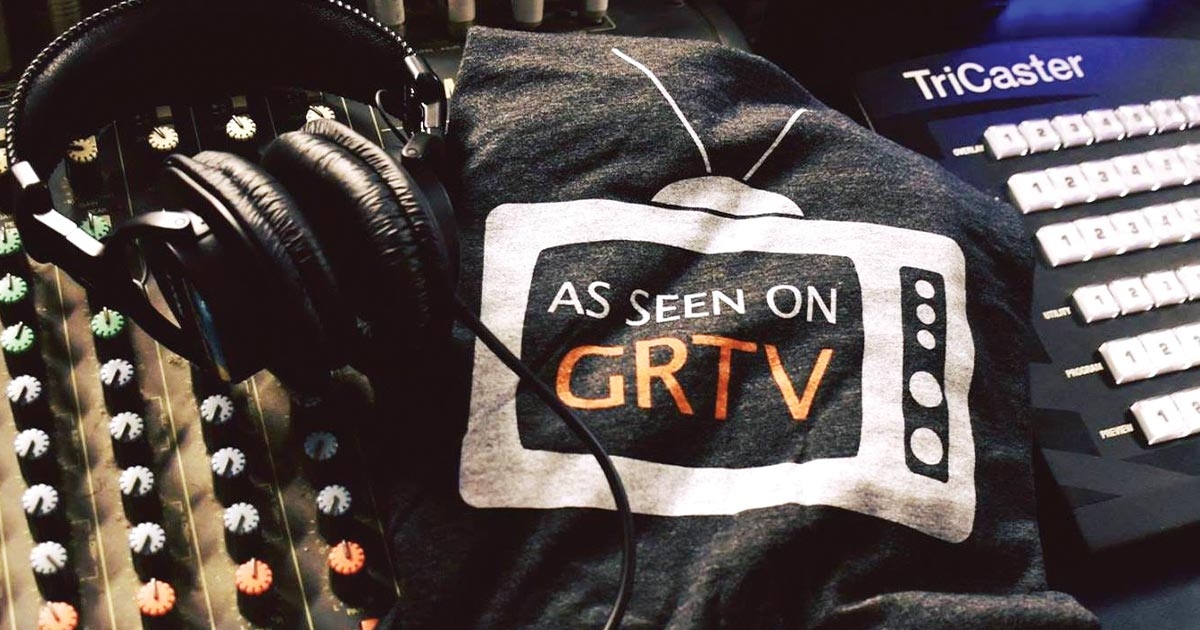Fifty five years ago, DCTV, located in Dale City, Virginia, was the site of an experiment, or an act of faith. Airtime was given over to local residents, who, free of commercial concerns, could create content that would speak directly to other members of the community. Other stations followed, and soon public access was an established player. In 1980, work began on GRTV, Grand Rapids’ own public access station; its first show would air in 1982.
The station’s most notable star may have been The Great Daryl Nathan. An African-American man, Nathan performed behind a keyboard while wearing a long, Frampton-esque wig. He passed away on July 22nd, 2022, but his music remains accessible via YouTube.
His song “4th of July” consists solely of the following lyrics: “On the fourth of July, strange things started happening as the pretty girls walked by.” It’s difficult to recommend sonically; it’s a repetitive, oddly elliptical song (just what were those strange things?), and not tremendously well-produced. Yet, Nathan’s passion and sincerity come through loud and clear.
In his idiosyncrasy and openness, Nathan represented the promise of public access television: to give a platform to voices that might not otherwise have one, voices transmitted not from Los Angeles or New York City, but from people right here. They're people we might run into at the gas station or the grocery store.
Revue spoke to Johannah Jelks, new Marketing Manager of GRTV. A young Black woman, she grew up watching the station. “It was always a big deal when somebody in our community got a show. It’s like they were Oprah! A lot of our leadership was on GRTV.”
Jelks sees GRTV as having provided minority communities, and local talent generally, with equipment, training, and access: tools necessary in order to be heard. “You could tell your own story, and it would be aired. It’s a wonderful legacy.”
As with all legacy media, GRTV today faces the challenge of remaining relevant in the modern world. Today’s audience faces an abundance of options. A friend might text you a link to Aretha Franklin’s live performance of “What A Fool Believes,” which could trigger a search for 70s fashion, in turn leading to a blog post about the film Boogie Nights, before ending with an investigation into prosthetics. Someone raised on the internet, used to such free-flowing inquiries, might balk at tuning into a particular channel. Actually, the idea of doing so may never even occur to them.
So, GRTV is going where the kids are: livestreaming, YouTube, Instagram, Twitter, and more, while remaining accessible to all generations via channel 25. “My goal is to reintroduce GRTV to our generation,” Jelks said. “That and recruiting new programmers who appeal to this generation.”
As much as GRTV is a showcase for content, it also helps foster it, offering classes in camera usage, editing, podcasting, and more. The goal of these classes is not to dictate what’s aired, but to refine it, helping creators make the best version of what they envision. To Jelks’ knowledge, the organization has never turned down a program.
Among its current offerings is Focus on Issues, a show providing roundtable discussions on local issues such as homelessness, sexual assault, refugees and immigration, and more. City Connection features Mayor Bliss answering viewer questions live. Songs From The Second Floor presents live performances recorded for WYCE.
Still, it may be that GRTV’s most compelling shows have yet to be made. By offering classes, equipment, and mentoring, GRTV has provided a chance for anyone to step into the spotlight and be heard. Jelks is hoping that the opportunity will be seized.
GRTV
grcmc.org





